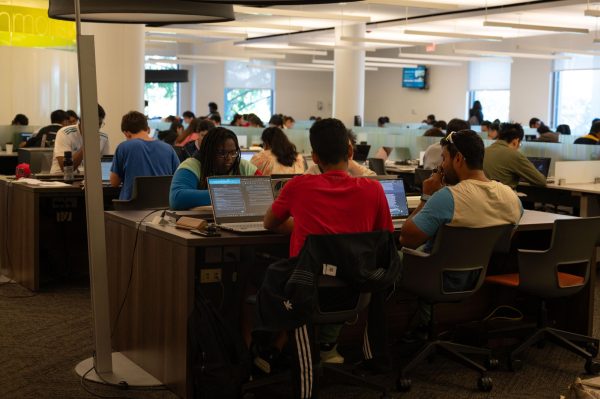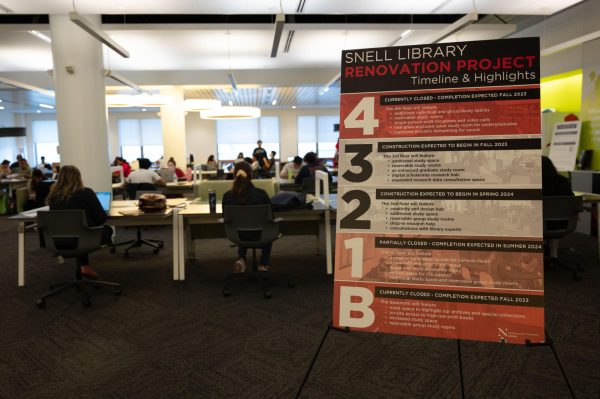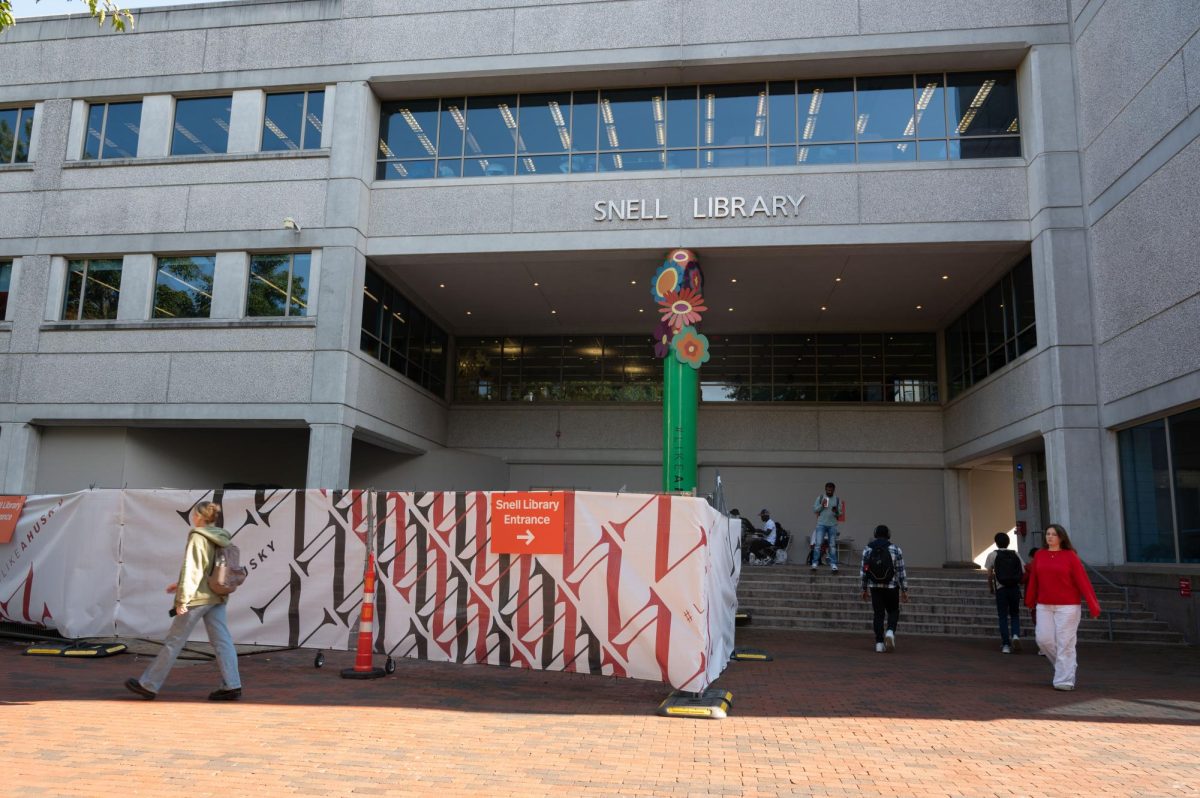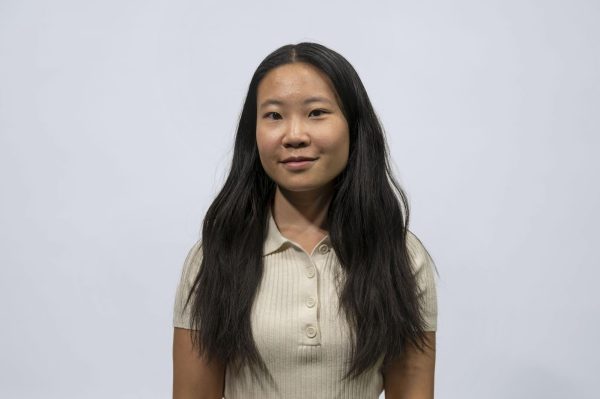Starting July 2023, Snell Library has been undergoing significant renovations that have brought several policy changes. Promising “improved study space,” “creative and collaborative opportunities,” “easier access to library and information technology services” and “compelling views,” the most significant change students can already witness is the change in noise policies.
According to the library’s website, “There is no expectation of general quiet on any floor of Snell Library during Library Renovations due to construction noise and limited space availability.”
Andrea Gonzalez, a second-year health science major, said that this change creates an issue for many students.
“It is unfair because I feel that everybody should have a space to work and have peace and quiet at the same time,” Gonzalez said. “I know a lot of people, including myself, find it hard to be in their own room and study because they get easily distracted and places like Snell are convenient.”
Gonzalez is not alone — many students and community members are also feeling the effects of the new policies, often taking to Reddit to complain and express concern about library noise levels. The new policy removes all noise regulations, making the problem of finding a quiet place to study or work more severe.
“It is important to remember that this genuinely impacts students and their ability to learn,” said Amanda Gomez, a first-year political science and international affairs combined major.

Originally, Snell had different zones in the library designated by noise level that would cater to different student needs. The higher the floor, the quieter it would be — or at least that was the expectation. Floor one was traditionally the loudest, and floor four was the quietest.
In the eyes of many students, these rules were never enforced in the first place, so the lack of any rules does not feel like a huge change.
“I wasn’t aware of the fact that any official policy had been revoked and I don’t think anyone else — or I assume a lot of people — weren’t aware, either,” said Nate Olson, a first-year political science major who frequently studies in Snell. “I think it’s just general library etiquette, whether or not people are enforcing it, that people are going to be quiet.”
Chase Holness, a first-year biochemistry major, agreed that the noise level has not been noticeably different and does not cause him distraction while studying.
“Consistent construction noise and varying volumes of actual voices are two different things,” Holness said. “It’s easy to tune out construction noise if you have headphones and it’s floors away so you don’t really hear it.”
The policy change has had its positive and negative effects; it has allowed students to engage in collaboration and group work more liberally but disadvantaged those who need a quiet space in order to thrive. Despite this, students agree that the university should focus on providing quiet spaces and alternatives for students to work, as well as provide information as to when students will have this critical space back.
“I think Northeastern should be helping students by keeping us informed about when the construction is going to be finished or be quiet enough to not greatly disrupt those trying to study inside Snell,” Gomez said.
Gonzales said that the university should “reserve some of the rooms to be for specific people with disabilities — and if not — focus on specific quiet floors, then specific quiet hours.”
Other students believe that since the change in policy didn’t make a huge difference in the atmosphere of Snell, it should not go back to its former state after construction.
“Not having the policy there to make it always quiet makes people adjust their volume to the situation, which I think makes more sense anyway,” Olson said.
The university communicated via email over the course of the last year to notify students of construction updates and estimated construction timelines. According to signage posted in the library, the fourth floor is expected to reopen this fall. The entire project is expected to be completed by Summer 2024.











